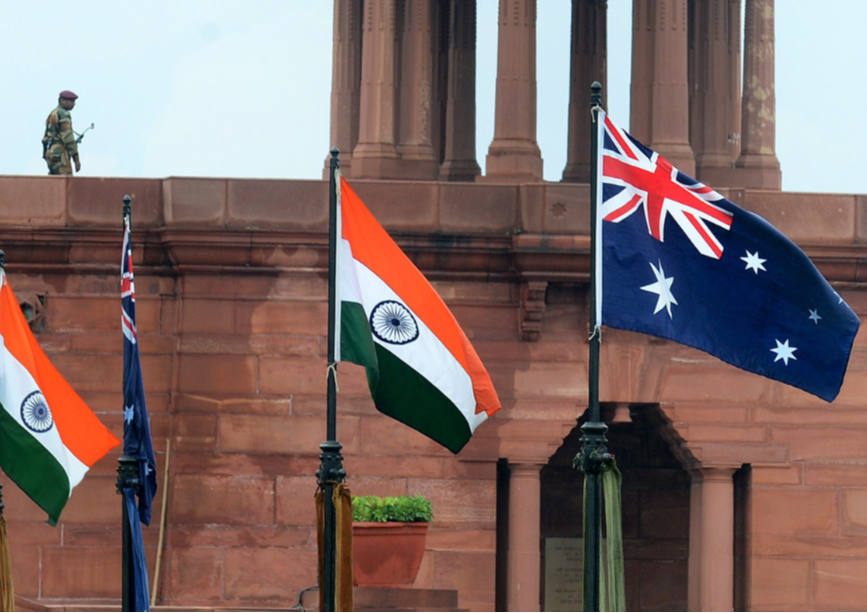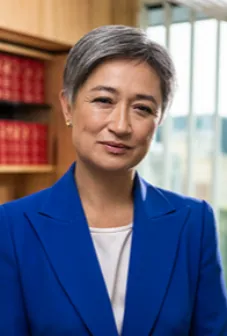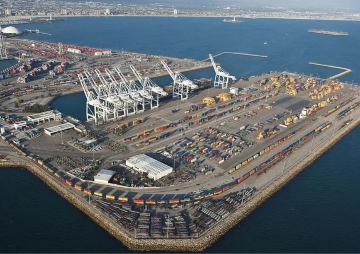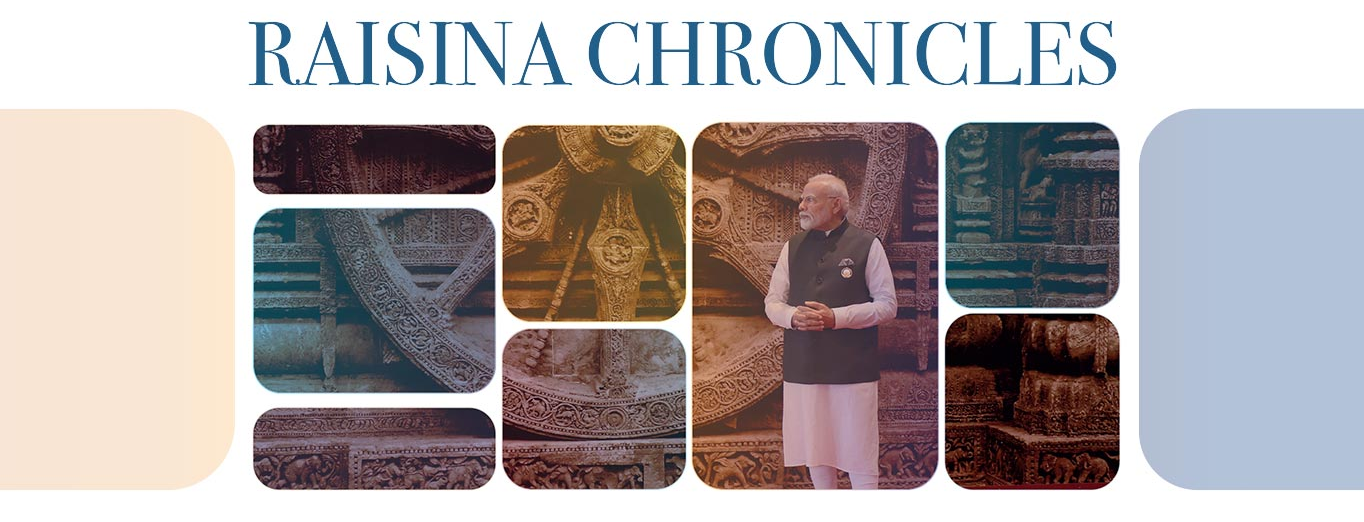
This article is a part of the series - Raisina Chronicles 2024
When the Raisina Dialogue was conceived, the world was already experiencing heightened disruption and the global order was already under considerable strain. As we enter the tenth year since the annual Dialogue was imagined, the context for these meetings has become ever more serious. We see more and more conflict in the world. Tensions in the Indo-Pacific have risen between states with overlapping claims and disputed borders. Compounding the challenges are dangerous encounters on land, in the air, and at sea.
We all know that the region we live in is being reshaped. The only question is whether we choose to play our part in the reshaping, or let others decide our future.
Against this background, the need for forums like the Raisina Dialogue has never been greater and the wisdom behind its inception has never been clearer. The Raisina Dialogue has rightly become one of the Indo-Pacific’s premier gatherings on geopolitics and geoeconomics, drawing leaders in government, business, media, and civil society.
Against this background, the need for forums like the Raisina Dialogue has never been greater and the wisdom behind its inception has never been clearer. The Raisina Dialogue has rightly become one of the Indo-Pacific’s premier gatherings on geopolitics and geoeconomics, drawing leaders in government, business, media, and civil society.
It is no coincidence that the conference has been founded, and is being held in India—a country that is central to regional stability. Like India, the Raisina Dialogue has become a centre of gravity for strategic thinking in the region. The Observer Research Foundation has also expanded its reach, including to Australia: Australia hosted the first Raisina@Sydney in 2023, and External Affairs Minister S. Jaishankar and I announced in late 2023 that Australia would host Raisina Down Under in 2024.
To mark this important milestone for the Raisina Dialogue, I am pleased to share my reflections on how we avert war and maintain peace—and more than that, how Australia and India are working to preserve a region that reflects our national interests and our shared regional interests. Our close collaboration in this endeavour is only made possible by the great strides that Australia and India have taken in our bilateral relationship in recent years.
Please read the full volume here.
A Regional Balance of Power
Australia looks to shape a region that is peaceful, stable and prosperous. Our interests lie in a region that operates by rules, standards and norms—where a larger country does not determine the fate of a smaller one; where each country can pursue its own aspirations, its own prosperity.
Australia is working in a range of forums to enable this stability. It was at Raisina in 2020 that a trilateral research project made the case for deeper cooperation between India, Australia and Indonesia. Since becoming Foreign Minister, I have had the privilege of attending regular trilateral meetings with my counterparts from Indonesia and India.
Australia, working with India and partners, is contributing to the balance of power that keeps the peace in the region. We know that strategic competition is operating on several levels. Domains that may have historically been considered separate—economic, diplomatic, strategic, military—are all interwoven, and all framed by an intense contest of narratives.
The challenges we face are not just the potential of kinetic conflict on our shores. Coercive trade measures; unsustainable lending; political interference; disinformation; and reshaping international rules, standards and norms that have benefited smaller countries, from trade to human rights—these all encroach on the ability of countries to exercise their agency, contribute to regional balance, and decide their own destiny. They constrain sovereignty. And while sovereignty might be exercised alone, it is best assured when we are working together. Because none of us can achieve a region we seek by ourselves.
The challenges we face are not just the potential of kinetic conflict on our shores. Coercive trade measures; unsustainable lending; political interference; disinformation; and reshaping international rules, standards and norms that have benefited smaller countries, from trade to human rights—these all encroach on the ability of countries to exercise their agency, contribute to regional balance, and decide their own destiny.
The less unified we are and the less we all operate by the same rules, the more likely it is that vulnerabilities will be exploited. This is why Australia is committed to strong partnerships like the Quad, and to mutually agreed rules that enable more stability and choices, which in turn translate to greater autonomy and sovereignty.
Just as each country has a responsibility to help maintain conditions for peace, we also have a responsibility to play our part in the collective deterrence of aggression. By having strong defence capabilities of our own, and by working with partners investing in their own capabilities, we change the calculus for any potential aggressor. Our foreign and defence policies are two essential and interdependent parts of Australia’s approach to statecraft. Both of these fundamental pillars are debated and discussed in New Delhi during the Raisina Dialogue.
Partnering with India
For Australia, working with India to shape the region that we want is a key priority. India’s prosperity matters to Australia, just as Australia’s prosperity matters to India. This is not only because of the immense strategic weight and importance of India in the region and the world. Geography may have decided that we share regional interests, but we have decided to be friends. This was a choice, one that speaks to our shared future and reflects our shared history.
Fifty years ago, in 1973, Australia’s Labor Prime Minister Gough Whitlam visited India. It was the first visit to India by an Australian Prime Minister in 14 years. Whitlam said this at the time, “Here are two great democracies bordering the Indian Ocean, both members of the Commonwealth, both deeply dedicated to world peace, both with Federal systems, both holding great institutions in common.”
Yet, understanding the need for deep ties between our countries goes back even further than Prime Minister Whitlam’s visit. In 1949, India’s Prime Minister Jawaharlal Nehru and Australia’s Prime Minister Ben Chifley met in London, at the Commonwealth Prime Ministers’ Conference. At the time, Prime Minister Nehru wanted India to both become a republic and maintain its membership within the Commonwealth. Prime Minister Chifley was one of the few supporters of his cause. Nehru and Chifley would speak of each other with great admiration in the years that followed. We take forward this tradition with the Albanese Government, recognising the importance of India to the region and the world. Our prime ministers met five times last year, including once in Sydney and twice in India.
India and Australia are working together through our Comprehensive Strategic Partnership, through the Quad, and through regional architecture and the multilateral system. We are growing our economic partnership and looking to deepen two-way trade and investment, including by negotiating an ambitious Comprehensive Economic Cooperation Agreement. We are also launching new climate initiatives in green steel and hydrogen, critical minerals and innovation and technology. The close cooperation between Australia and India that Prime Minister Whitlam envisaged has come to pass.
The relationship also benefits from the legacy of Prime Minister Whitlam’s changes to immigration policy for Australia. Half of the Australian population were born overseas or have a parent who was born overseas; that includes me. It means that when Australians look across the world, we see ourselves, just as the world sees itself reflected in us. One in every 25 Australians claims Indian heritage— our fastest-growing and second-largest diaspora community.
We celebrate this history and this heritage. We launched the Centre for Australia-India Relations during Prime Minister Modi’s visit to Australia in May, at an event attended by some 20,000 members of the diaspora. The Centre is harnessing the energy and knowledge of Australia’s Indian community to improve our economic and political links. The 850,000 Indian tourists and students that visit Australia each year also contribute to this goal.
Australia also launched a new Maitri fellowship program, which will enable Indian researchers to spend six months to two years at an Australian think tank, and Australian researchers to spend six months in India. We recognise the important role that think tanks, civil society and other stakeholders play in this relationship, as well as the power and influence of conferences such as the Raisina Dialogue, that provide a platform for debate. The Raisina Young Fellows Programme, supported by the Australian government, is another way in which this forum is developing and providing opportunities to emerging scholars and mid-career officials alike.
Australia also launched a new Maitri fellowship program, which will enable Indian researchers to spend six months to two years at an Australian think tank, and Australian researchers to spend six months in India.
Australia and India have a proud history as democracies that foster academic excellence and foster a broad range of views. At a time when pluralism and democracy are being challenged worldwide, the next generation of Indians and Australians have a particular responsibility to strengthen the institutions that we hold dear.
We believe that our multicultural democracy and the pluralism that accompanies it is essential to our ability to shape the region we live in. I have the privilege of serving alongside the most diverse parliament in Australia’s history. We believe this diversity is one of our greatest strengths.
Conclusion
The challenges that we face today in our region and in the world have prompted comparisons with 1914, the 1930s, and 1962. Those comparisons should serve as warnings, but nothing more. We are not hostages to history. We decide what to do with the present. We are active players in our region, not just to guard against the consequences of regional contest, but to shape and influence it to advance our national and shared interests.
The Raisina Dialogue has always focused on the gravest challenges of our time. Today, military power is expanding, but measures to avoid military conflict are not—and there are insufficient concrete mechanisms for averting it. The risk of conflict is of deep concern to us all.
That is why Australia continues to encourage mutual strategic reassurance, military risk reduction measures and open lines of communication at all levels. Anyone with the privilege of a platform such as the office that I hold, or a conference like Raisina, should feel compelled to press for the responsible management of global-power competition. This is in the interest of all of us with an existential stake in regional peace and stability.
The global community comes together at the Raisina Dialogue to debate these issues. It is a key opportunity for the world’s leaders and thinkers to develop ideas for progress and prosperity. The success of this forum in New Delhi shows the seriousness with which India takes its role in the Indo-Pacific region. It also reflects the unprecedented circumstances that we face. As we chart a way forward, the need for the Raisina Dialogue, and the ideas that flow from it, will only grow.
The views expressed above belong to the author(s). ORF research and analyses now available on Telegram! Click here to access our curated content — blogs, longforms and interviews.




 PREV
PREV



